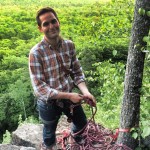 Taylor is a 4th year Psychology major, working toward a Social and Behavioral Studies minor as well as a Writing certificate. She has worked at IGSC3 for one year and has also worked as a Teaching Assistant and Research Assistant. Outside of Michigan Tech, Taylor works as a barista at Cyberia Cafe in downtown Houghton and volunteers as a Big Sister through the Big Brothers Big Sisters mentoring program. Previously, she earned an Associates Degree in Culinary Arts from the Great Lakes Culinary Institute. On the weekends you can find her baking, adventuring, hanging out with friends, spending time with her family or playing with her cat.
Taylor is a 4th year Psychology major, working toward a Social and Behavioral Studies minor as well as a Writing certificate. She has worked at IGSC3 for one year and has also worked as a Teaching Assistant and Research Assistant. Outside of Michigan Tech, Taylor works as a barista at Cyberia Cafe in downtown Houghton and volunteers as a Big Sister through the Big Brothers Big Sisters mentoring program. Previously, she earned an Associates Degree in Culinary Arts from the Great Lakes Culinary Institute. On the weekends you can find her baking, adventuring, hanging out with friends, spending time with her family or playing with her cat.
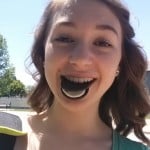 Miranda is a second year Biological Sciences major and is working on an International German minor and a Microbiology minor. She has worked for IGSC3 for one year, and next year will begin coaching at the Biology Learning Center as well. Outside of work and school, Miranda likes to read, explore the Keweenaw, and hang out with friends
Miranda is a second year Biological Sciences major and is working on an International German minor and a Microbiology minor. She has worked for IGSC3 for one year, and next year will begin coaching at the Biology Learning Center as well. Outside of work and school, Miranda likes to read, explore the Keweenaw, and hang out with friends
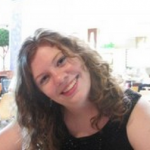 Sarah is a fourth year Environmental Engineering major and is currently working on a certificate in Global and Technological Leadership through the Pavlis Institute. She will graduate in May 2015 and return for a Master’s degree in Environmental Engineering through Michigan Tech’s Master’s International Peace Corps Program. This is Sarah’s first year coaching at IGSC3, but she has been coaching at the Michigan Tech’s Multiliteracies Center, IGSC3’s neighboring center, for the past two years. Sarah enjoys reading, traveling, and photography in her spare time.
Sarah is a fourth year Environmental Engineering major and is currently working on a certificate in Global and Technological Leadership through the Pavlis Institute. She will graduate in May 2015 and return for a Master’s degree in Environmental Engineering through Michigan Tech’s Master’s International Peace Corps Program. This is Sarah’s first year coaching at IGSC3, but she has been coaching at the Michigan Tech’s Multiliteracies Center, IGSC3’s neighboring center, for the past two years. Sarah enjoys reading, traveling, and photography in her spare time.
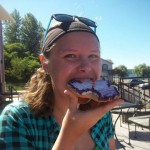 Larissa is a third year Psychology major and is working towards a minor in Law and Society as well as Ethics and Philosophy. She has worked at IGSC3 for one year and is also a coach at the Multiliteracies Center. In the fall of 2015 she will also be an Academic Success Coach and a Peer Teaching Assistant. When Larissa is not working she enjoys watching Netflix, sleeping, reading, playing with cats, and biking.
Larissa is a third year Psychology major and is working towards a minor in Law and Society as well as Ethics and Philosophy. She has worked at IGSC3 for one year and is also a coach at the Multiliteracies Center. In the fall of 2015 she will also be an Academic Success Coach and a Peer Teaching Assistant. When Larissa is not working she enjoys watching Netflix, sleeping, reading, playing with cats, and biking.
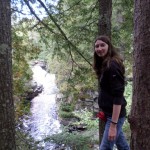 Rachel has been the Graduate Teaching Assistant for IGSC3 (and the MTMC) since 2013. She is a Ph.D candidate in Geology, studying a volcanic area in Ethiopia. Her undergraduate degree is in Earth and Environmental Science and she has an International Masters in Volcanology and Geotechniques. She is from England and has studied abroad in Iceland, France and Michigan. She is also a board member for Nosotros; a latin organization on campus. Outside of university, Rachel volunteers for Little Brothers Friends of the Elderly on holidays and enjoys dancing and reading in her free time.
Rachel has been the Graduate Teaching Assistant for IGSC3 (and the MTMC) since 2013. She is a Ph.D candidate in Geology, studying a volcanic area in Ethiopia. Her undergraduate degree is in Earth and Environmental Science and she has an International Masters in Volcanology and Geotechniques. She is from England and has studied abroad in Iceland, France and Michigan. She is also a board member for Nosotros; a latin organization on campus. Outside of university, Rachel volunteers for Little Brothers Friends of the Elderly on holidays and enjoys dancing and reading in her free time.
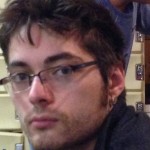 Connor is a third year Communication, Culture, and Media major who speaks German but has not signed up to get his certificate yet. The end of this semester will mark the second year he’s been working in the IGSC3. In his free time, Connor can be found reading, writing, and guzzling coffee like it’s the mana of life.
Connor is a third year Communication, Culture, and Media major who speaks German but has not signed up to get his certificate yet. The end of this semester will mark the second year he’s been working in the IGSC3. In his free time, Connor can be found reading, writing, and guzzling coffee like it’s the mana of life.
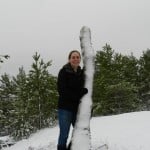 Valerie is a fifth year Medical Laboratory Science major and has a minor in International German. She has been working with IGSC3 for two years and also works as a coach in the Biology Learning center. In her free time, Valerie likes to play an amalgam of intramural sports and enjoys playing music. Valerie will be graduating this spring and will continue her education at the Michigan State College of Human Medicine.
Valerie is a fifth year Medical Laboratory Science major and has a minor in International German. She has been working with IGSC3 for two years and also works as a coach in the Biology Learning center. In her free time, Valerie likes to play an amalgam of intramural sports and enjoys playing music. Valerie will be graduating this spring and will continue her education at the Michigan State College of Human Medicine.
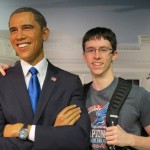 Andrew is a mechanical engineer in the Blue Marble Security enterprise. He enjoys playing soccer and frisbee whenever the temperature is above freezing. He also dabbles in video, board, and card games with his friends. Andrew has been a coach since the August 2014, and he is expected to graduate after the spring semester of 2017.
Andrew is a mechanical engineer in the Blue Marble Security enterprise. He enjoys playing soccer and frisbee whenever the temperature is above freezing. He also dabbles in video, board, and card games with his friends. Andrew has been a coach since the August 2014, and he is expected to graduate after the spring semester of 2017.
This article from the Faculty Focus e-newsletter explores the intersection of computer-based testing and an open-book, open-note approach to focus on higher level Bloom’s taxonomy assessment. It’s definitely worth a read!
Why Open Book Tests Deserve a Place in Your Courses
